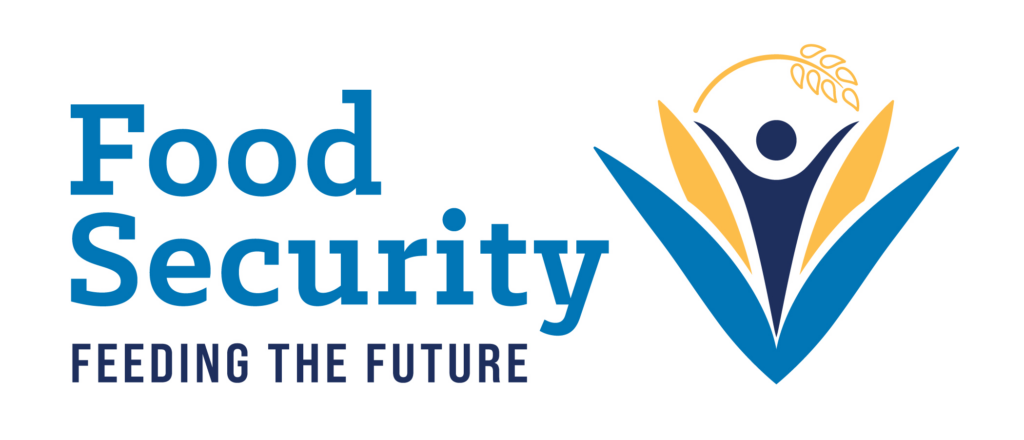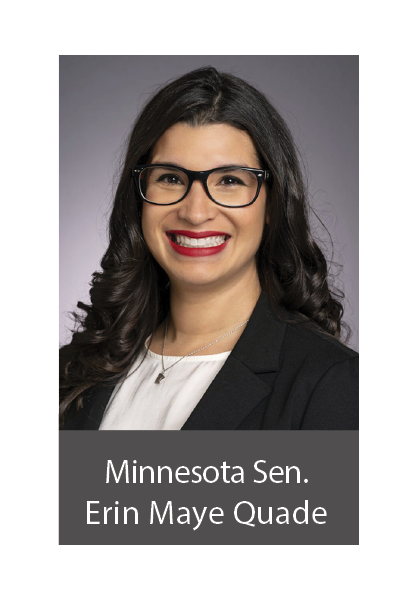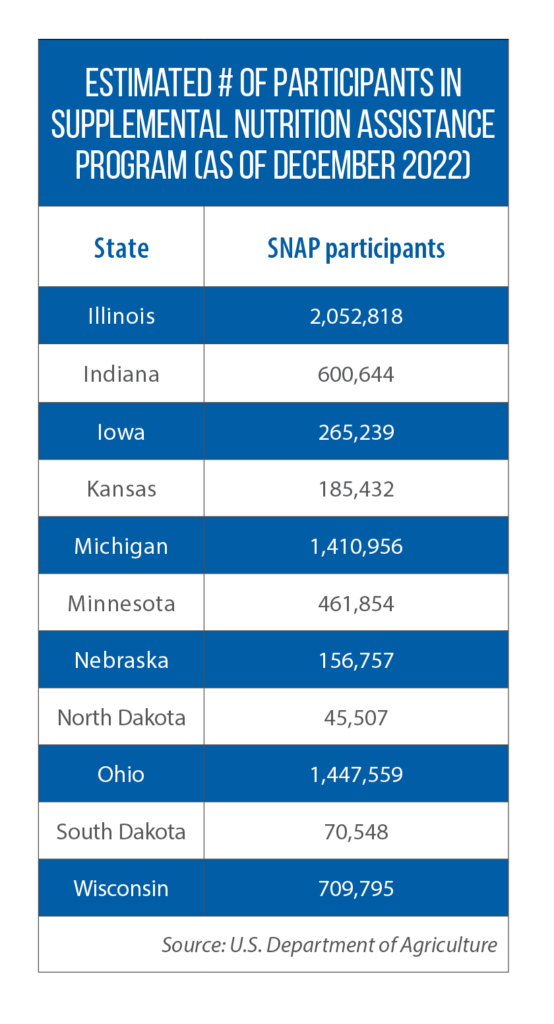2023 MLC Chair’s Initiative on Food Security | Feed people, help farmers: How two nutrition programs have grown in two Midwestern states
More than a decade ago, a program known as Double Up Food Bucks launched in a handful of local farmers markets in Detroit.
Not long after, a similar pilot initiative, Market Bucks, was up and running in Minneapolis.
 With both initiatives, the idea was to boost the food-purchasing power of lwer-income people getting assistance via the federal Supplemental Nutrition Assistance Program (SNAP), while also opening up new sales opportunities for local farmers. These were not state programs. Eventually, though, they got the attention of legislators who saw promise in an approach that could address three objectives at once.
With both initiatives, the idea was to boost the food-purchasing power of lwer-income people getting assistance via the federal Supplemental Nutrition Assistance Program (SNAP), while also opening up new sales opportunities for local farmers. These were not state programs. Eventually, though, they got the attention of legislators who saw promise in an approach that could address three objectives at once.
“We feed people, we get money into our farmers’ pockets, and people are able to get fresh, healthy vegetables in a community-centered setting,” Minnesota Sen. Erin Maye Quade says.
Funding for Market Bucks began being included in Minnesota’s budget in the middle of the last decade; likewise, Michigan lawmakers started allocating dollars for Double Up Bucks. That has allowed for an expansion of both of these programs to locations across each state.
 In Minnesota, for example, Market Bucks was available in 105 different farmers markets last year, says Jill Westfall, director of programs for Hunger Solutions Minnesota.
In Minnesota, for example, Market Bucks was available in 105 different farmers markets last year, says Jill Westfall, director of programs for Hunger Solutions Minnesota.
More SNAP purchasing power
Here is how Market Bucks works: For purchases of SNAP-eligible foods at a farmers market, a SNAP participant gets a dollar-for-dollar match, up to $10 per visit. Spend $10 at the farmers market, and you can get $20 worth of items. State funding is used to cover that match.
A federal grant provides another dollar-for-dollar match (also up to $10 per visit) for purchases of fresh fruits and vegetables. This program is known as Produce Market Bucks.
“That double match made it more attractive, especially for some of our smaller farmers markets,” Westfall says.
 Demand for the program has never been higher, and it’s one reason why Sen. Maye Quade and other legislators want a funding boost in Minnesota’s new biennial budget. She has proposed an annual appropriation of $500,000, up from the existing $325,000 (SF 1927). Right now, Market Bucks is only available at farmers markets. Under Maye Quade’s bill, two other options would be added: one, direct sales from farmers; and two, sales based on a “community supported agriculture model,” in which individuals purchase subscriptions, or shares, of food produced from a local farm in advance of the growing season.
Demand for the program has never been higher, and it’s one reason why Sen. Maye Quade and other legislators want a funding boost in Minnesota’s new biennial budget. She has proposed an annual appropriation of $500,000, up from the existing $325,000 (SF 1927). Right now, Market Bucks is only available at farmers markets. Under Maye Quade’s bill, two other options would be added: one, direct sales from farmers; and two, sales based on a “community supported agriculture model,” in which individuals purchase subscriptions, or shares, of food produced from a local farm in advance of the growing season.
Michigan’s Double Up Bucks provides a similar dollar-for-dollar match. It only applies to purchases of fruits and vegetables, but sales are not limited to farmers markets. Grocery stores are able to participate as well. At these stores, during the heart of Michigan’s growing season (July through November), at least 20 percent of the sales for Double Up Bucks must come from state-grown products, says Nathan Medina, senior manager of state policy for the Fair Food Network.
Michigan’s most recent annual appropriation for Double Up Bucks was $900,000, but a supplemental budget proposal would mark a big shift in state support — a proposed $15.5 million in spending that would be spread over five years. Medina says that change would provide the program with more funding certainty and improve the chances of securing federal grants.
Since its start in Detroit, Double Up Bucks has expanded to more than 25 U.S. states, including most in the Midwest. The scope of these programs, as well as their sources of funding, varies from state to state. Federal support for nutrition incentive programs such as Double Up Bucks and Market Bucks began with the 2014 farm bill, and Medina says the next farm bill is likely to include additional funding opportunities and enhanced federal matches.
Michigan Sen. Roger Victory chose “Food Security: Feeding the Future” as his CSG Midwestern Legislative Conference Chair’s Initiative for 2023. CSG Midwest produced a series of articles, policy research and interstate sessions for legislators in support of this initiative.